By Joseph M. Horodyski
British Field Marshal Sir Bernard Montgomery has gone down in history as the victor of El Alamein and the relentless nemesis of Field Marshal Erwin Rommel, Nazi Germany’s famed “Desert Fox.” But Monty’s feat was merely a repeat of that of the British general who preceded him, a general who defeated Rommel not once, but twice. General Sir Claude Auchinleck met the best that Rommel had to offer, and came out victorious time and again. Yet today, the less colorful Auchinleck remains little known outside of Great Britain, while Montgomery has entered the pantheon of World War II heroes. (Read more about the defining characters who were often left out of the history books. Subscribe to WWII History magazine today.)
Auchinleck’s Family History of Military Service
Auchinleck was born into a military family in 1884 and later attended Sandhurst Military Academy. He served for a time in India, earning the respect of the native population. In World War I, he successfully defended the Suez Canal from an attack by the Turks. He later saw service on the Tigris River, where nearly half his regiment became casualties, and he fought throughout all stages of the Mesopotamian campaign. In peacetime, he served for two years as an instructor at the Royal Staff College, and he worked his way through the ranks holding various staff appointments. He later saw action in Afghanistan and was promoted to deputy chief of the General Staff in India.
When war again broke out in 1939, Auchinleck was pulled from India and ordered back to England, where he was given command of the 4th Corps, then earmarked for France. In late May 1940, he handled the evacuation of all British forces from northern Norway. Returning to England, he was given command of defensive forces in the south, where he was responsible for organizing the Home Guard. In November, when the threat of invasion had passed, Auchinleck returned to India as a full general and commander in chief. During this period, he dispatched troops to quell a rebellion in Iraq, bringing him to the favorable attention of Prime Minister Winston Churchill, who was always on the lookout for a successful general.
War Comes to North Africa
In the fall of 1940, after Italy’s entry into the war, Benito Mussolini sent his forces over the Libyan border in an attempted invasion of Egypt. This prompted a British response under General Archibald Wavell, whose forces succeeded in pushing an Italian force three times their own size back across the Libyan frontier. Wavell’s offensive came to a halt when the British forces were diverted for various sideshows in Greece and Crete in the spring of 1941. The British success, however, led Adolf Hitler to send a small mobile panzer force to the desert to save his Italian ally from further disaster. Erwin Rommel and his newly named Afrika Korps totally destroyed the British Western Desert Force and regained all the ground the Italians had lost.
The only bright spot was the defense of Tobruk, a small Libyan port that was surrounded and cut off from resupply. The outnumbered garrison grimly hung on month after month, preventing Rommel from advancing any farther into Egypt. Wavell then launched “Battleaxe,” an ill-conceived, half-hearted attempt to relieve Tobruk and push the Germans back into Libya. Once again the Germans outmaneuvered and outfought their opponents. Wavell was relieved and Churchill began casting about for a fighting general who could take on the Afrika Korps. He settled on Auchinleck, who arrived in Cairo on June 22, 1941. At the same time, the Western Desert Force was officially renamed the British Eighth Army.
How Claude Auchinleck Out-Generaled the Famous Erwin Rommel
No sooner than Auchinleck had taken the reins than he began being badgered by Churchill in London for an immediate offensive to erase the reverses of the previous months. But Auchinleck knew that to face off with a foe as experienced as Rommel before they were properly prepared would be to court disaster; he resisted the prime minister’s pressure and insisted that he would not move until he felt the troops were ready.
Operation Crusader, the planned reconquest of Cyrenaica, was finally launched in the early morning hours of November 18. For the first two days all went well. By the third day, however, Rommel fell on the advancing British armor with a vengeance around Sidi Rezegh, catching it out in the open. He took on one British unit after another, mauling or utterly destroying it before hurling his massed panzers at the next. Nearly every British formation took heavy punishment. Auchinleck’s confidence, however, was not shaken. He cabled the prime minister that “prospects of achieving our immediate object, namely the destruction of the German armored forces, seem good.”
At this point, Claude Auchinleck’s subordinate commander, Lt. Gen. Sir Alan Cunningham, lost his nerve. He halted the offensive and wired Auchinleck for permission to withdraw into Egypt. Auchinleck flew out to Eighth Army headquarters to assess the situation for himself. “I thought Rommel was probably in as bad a shape as we were,” he correctly concluded, “and I ordered the offensive to continue. I was in no doubt myself at any time as to the right course.” He ordered Cunningham to “attack the enemy relentlessly using all your resources, even to the last tank.”
Auchinleck’s decision was soon proven correct. British armor hammered Rommel’s panzers to a standstill. Low on supplies, the hard-pressed Afrika Korps was forced to abandon the attack and retreat westward. Auchinleck, back in Cairo, faced a difficult decision. Interpreting Cunningham’s indecision as timidity bordering on panic, he relieved Cunningham from command. He chose as a replacement his deputy chief of staff, Maj. Gen. Neil M. Ritchie, who at 44 was Britain’s youngest general.
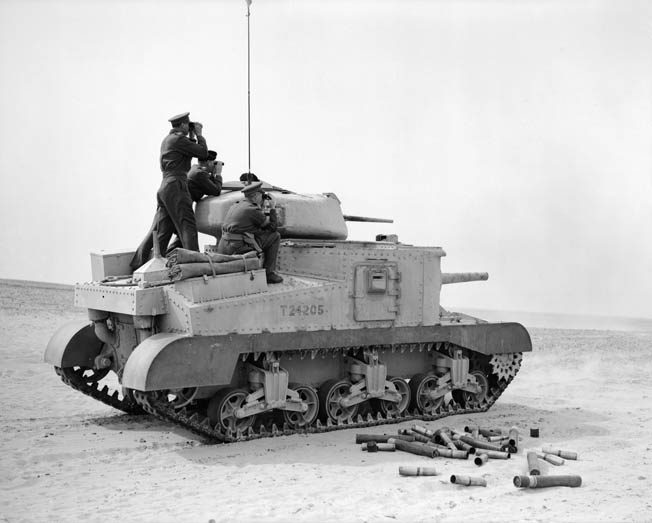
By now, Auchinleck was virtually running the battle himself; the new Eighth Army commander merely functioned as his deputy. Like Rommel, Auchinleck knew the importance of leading from the front. He flew out to where the fighting was on December 1 and stayed 10 days among his men, sharing the same spartan conditions, restoring confidence, and slowly turning Crusader from near disaster into an unequivocal triumph. “We will get this stinker down where he belongs before long, I hope,” he told a member of his staff.
Rommel was still capable of working his magic. Escaping the trap Auchinleck had worked so hard to set for him, the Desert Fox conducted an orderly retreat across the same ground he had advanced over barely a month before. The British relieved the overjoyed defenders of Tobruk, taking 33,000 Axis prisoners and destroying 300 enemy tanks, and pushed the Afrika Korps clear across Cyrenaica to the same positions it had occupied 10 months before. Sir Claude Auchinleck had done the impossible: with virtually equal forces; he had out-generaled Rommel by sheer force of will.
Rommel’s Legend Grows
But forces beyond Auchinleck’s control would change his destiny yet again. Japan’s entry into the war forced the British to send many of their North African troops to stave off disaster in the Pacific; Auchinleck’s command was denuded of the very troops who had helped make his victory possible. Rommel sensed the British weakness and relentlessly struck back. The British were taken entirely by surprise at the speed with which the Germans were able to recover. The Germans retook Benghazi and were soon knocking again at Tobruk’s door.
Throughout the spring of 1942, both sides rested and resupplied, gathering strength for the contest to come. Churchill continued heaping abuse on his desert commander, pressuring Auchinleck to mount an immediate offensive—“Now, if not sooner.” “When there is some chance of it being a success,” Auchinleck fired back. He was not about to risk the piecemeal destruction of his forces before they were ready.
By this time, Rommel’s uncanny knack for survival and unerring talent for victory had grown to mythic proportions, and he began to be regarded as invincible. To combat this perception, Auchinleck issued a proclamation that became legendary: “There exists a real danger that our friend Rommel is becoming a kind of magician or bogey-man to our troops, who are talking far too much about him. He is by no means a superman, although he is undoubtedly very energetic and able. I wish you to dispel by all possible means the idea that Rommel represents something more than an ordinary German general.”
Auchinleck Keeps the Pressure on Rommel’s Forces
Rommel struck first, on May 26. His plan was to use his infantry in holding attacks against the northern part of the Gazala line, while taking his armor on a long sweep to the south, outflanking the British forces and rolling them up one after another. He soon ran into a nasty surprise: Auchinleck’s new, heavier Grant tanks from the United States were far superior to anything the Germans had yet faced in Africa. Within two days of determined, incessant slogging matches, the Afrika Korps had lost a third of its panzers and were stopped cold. “Well done, Eighth Army,” Auchinleck jubilantly cabled from Cairo, “Keep it up!”
The Germans dug in, withdrawing into a 100-mile perimeter surrounded by minefields and British armor. Here was the moment all England had been waiting for. Never would there be a better chance to destroy Rommel and his army once and for all. Auchinleck, eager to close the trap, urged Ritchie to take the offensive immediately, adding, “We must be ready to move at once, whichever way the cat jumps.”
But Ritchie hesitated. For two precious days, while he deliberated, Rommel regrouped his forces and smashed through the British troops encircling him, destroying more than 100 tanks, inflicting at least 10,000 casualties, and taking 3,000 British prisoners in the process. Having escaped the trap, the Desert Fox turned his attention back to the prize that had eluded him the year before: Tobruk.
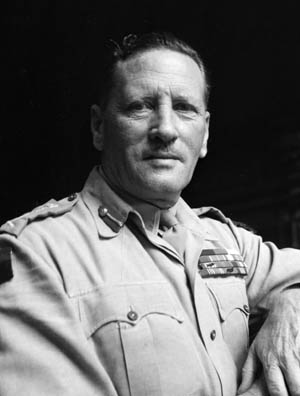
“Rommel, Rommel, Rommel! What else matters but beating him?”
This was not the formidable Tobruk of 1941. Most of its defenses had been stripped to meet British commitments elsewhere, and the city was a mere shell of its former self. Aware of its weakness, Auchinleck knew it could not be held. On June 20, the enemy struck, with the Luftwaffe flying 580 sorties in a single day. Dive-bombing attacks threw up towering clouds of dust and smoke, while German and Italian artillery joined in, their combined effect leaving Tobruk’s defenders dazed and in shock. Once a path was cleared through the protective minefields, the Axis infantry swarmed in, engaging in hand-to-hand fighting, with the panzers rolling in to mop up any remaining resistance. The Libyan port that had gone down in history as defying all the Germans could throw at it for nine months fell in less than a day. To Churchill, it was the bitterest blow of the entire war, a “shattering and grievous loss.”
Within a week, the Afrika Korps was pushing into Egypt, driving halfway to Alexandria and the Suez Canal. Panic set in. A pall of smoke hung over Alexandria as British officials hastily burned their records. Automobiles and trucks clogged the roads leading out of the city, and fleeing refugees packed the trains. Barclays Bank paid out one million pounds cash in a single day to customers who feared the bank falling into enemy hands. Government offices were evacuated and a curfew was imposed. “Rommel, Rommel, Rommel!” Churchill moaned. “What else matters but beating him?”
Auchinleck’s Strategic Retreat
Claude Auchinleck was galvanized into action. He began a long strategic retreat, signaling his troops: “I’ve never been a good loser. I’m going to win. The enemy hopes to take Egypt by bluff. Show him where he gets off.” On June 25, he flew to Ritchie’s headquarters at Mersa Matruh, relieved him of command, and took over command of the Eighth Army. He fell back to the small railway stop of El Alamein, 240 miles inside Egypt and barely 60 miles from Alexandria. There, a narrow, 80-mile front presented itself, bordered on the north by the sea and on the south by the escarpments of the Quattara Depression.
The terrain did not lend itself to any of the sweeping moves that had characterized the desert war. Rommel, for his part, was growing weaker by the day. Despite repeated promises and assurances from Berlin, fewer and fewer supplies were getting through the British blockade. Rommel knew that every day he hesitated the British were growing stronger. Realizing that everything depended on one last throw of the dice, he urged his men on to make one final great effort to attain victory and return home in triumph.
For the next six weeks, Auchinleck lived among his men, sleeping out in the open and eating their meager rations. He began to have a calming effect on his demoralized troops. The Eighth Army continually attacked the enemy in an endeavor to recover the initiative and destroy him where he stood. On July 21, Auchinleck went on the offensive along the Ruweisat Ridge south of the Alamein position. He broke through the main German lines, setting to rout a force of newly arrived Italians, who panicked and broke, and took on a last-ditch line of German antitank defenses.
Auchinleck finally called off the fighting to conserve what remained of his command. Almost without knowing it at the time, the Eighth Army had succeeded brilliantly, stopping Rommel’s advance to the Nile delta and paving the way for a future offensive of its own. Rommel himself paid his adversary the ultimate tribute when he wrote to his wife that Auchinleck was “handling his forces with very considerable skill. He took the initiative himself and executed his operations with deliberation and noteworthy courage.”
Replaced With Disgrace
On July 30, Auchinleck reluctantly called off all offensive operations due to a shortage of fresh troops; he expected to be able to return to the attack about mid-September. But it was not to be. By the autumn of 1942, Churchill desperately needed a military victory if his government was to survive. Auchinleck had to take the blame for the Eighth Army’s losses over the summer and for appointing Ritchie to command in the first place. Churchill sent Sir Ian Jacob to relieve Auchinleck from command. Jacob did his duty, but not without a sense of regret. “I felt,” he said, “as if I were going to murder an unsuspecting friend.” Jacob brought a letter from Churchill offering Auchinleck a newly created command in the Middle Eastern backwaters of Iraq, Palestine, Syria, and Persia.
At noon on August 9, Auchinleck had a face-to-face interview with Churchill, who was visiting the Egyptian front. What was said at that meeting was not recorded, but Auchinleck refused Churchill’s offer to “let him down lightly.” The prime minister sent Sir Harold Alexander, a veteran of Dunkirk, to take over the Middle Eastern command in Cairo and Lt. Gen. Bernard Law Montgomery to take over command of the Eighth Army. Auchinleck relinquished command on August 15 and quietly disappeared from the sphere of active operations, disgraced in many eyes.
Claude Auchinleck and Erwin Rommel: Equals in the Desert
His strategic genius was confirmed when the new Eighth Army commander accepted his predecessor’s plan for the defense of El Alamein virtually unchanged. Auchinleck had proposed to wear down the Axis armor in a battle of attrition, only committing British tanks when the panzers had either been destroyed or run dry by a shortage of gasoline. This is almost exactly what Montgomery later achieved. In an epic three-week battle the Eighth Army, supported by a wealth of supplies and arms that Auchinleck could only dream of, virtually destroyed the Afrika Korps. In the end, the myth of Rommel’s invincibility was shattered not by Montgomery, but by Auchinleck’s genius before him.
Auchinleck’s place in history will forever be linked with Rommel’s. In a strange way, they were mirror images of one another. Each was an officer of the old school who preferred to lead from the front, commanded the respect and devotion of their men, exercised a calming effect in times of crisis, and exhibited courage and confidence in times of battle. Each was known for his humanity, decency, and proper treatment of prisoners; each endured the constant pressure of superiors thousands of miles from the battlefront. In Sir Claude Auchinleck, Erwin Rommel found a will at least equal to his own.
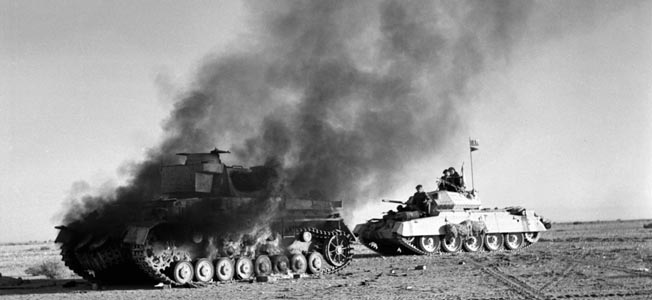
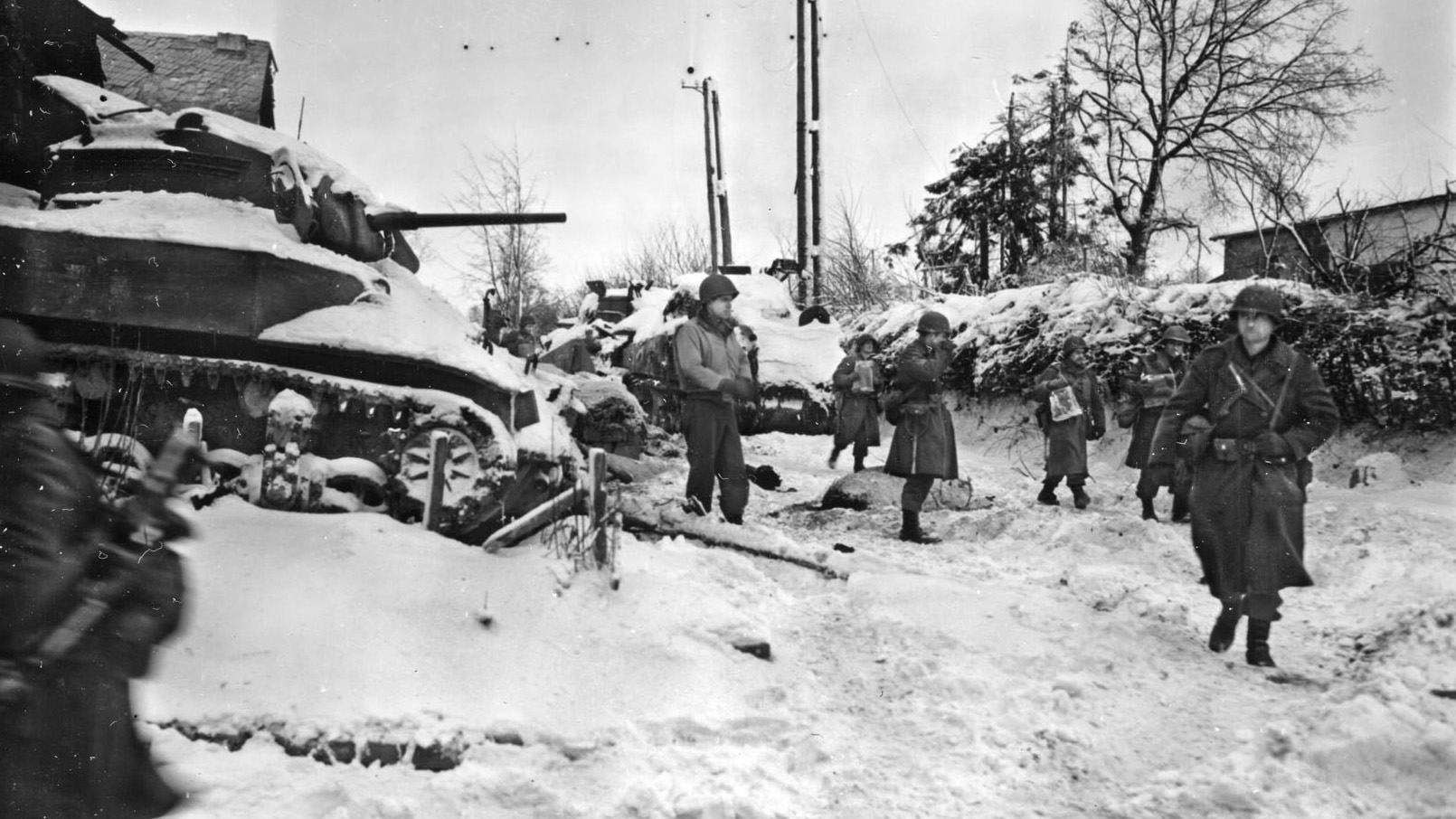
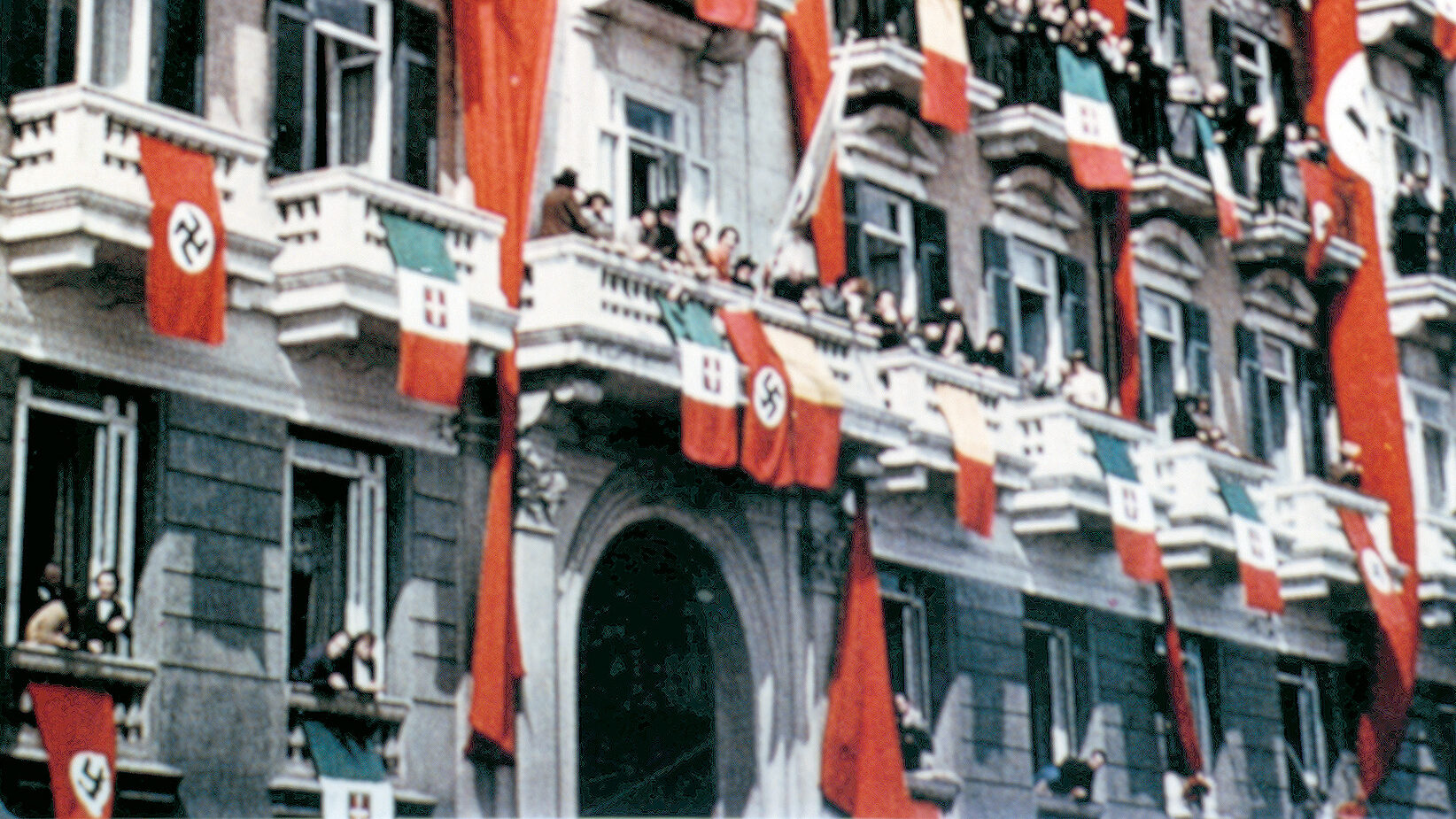
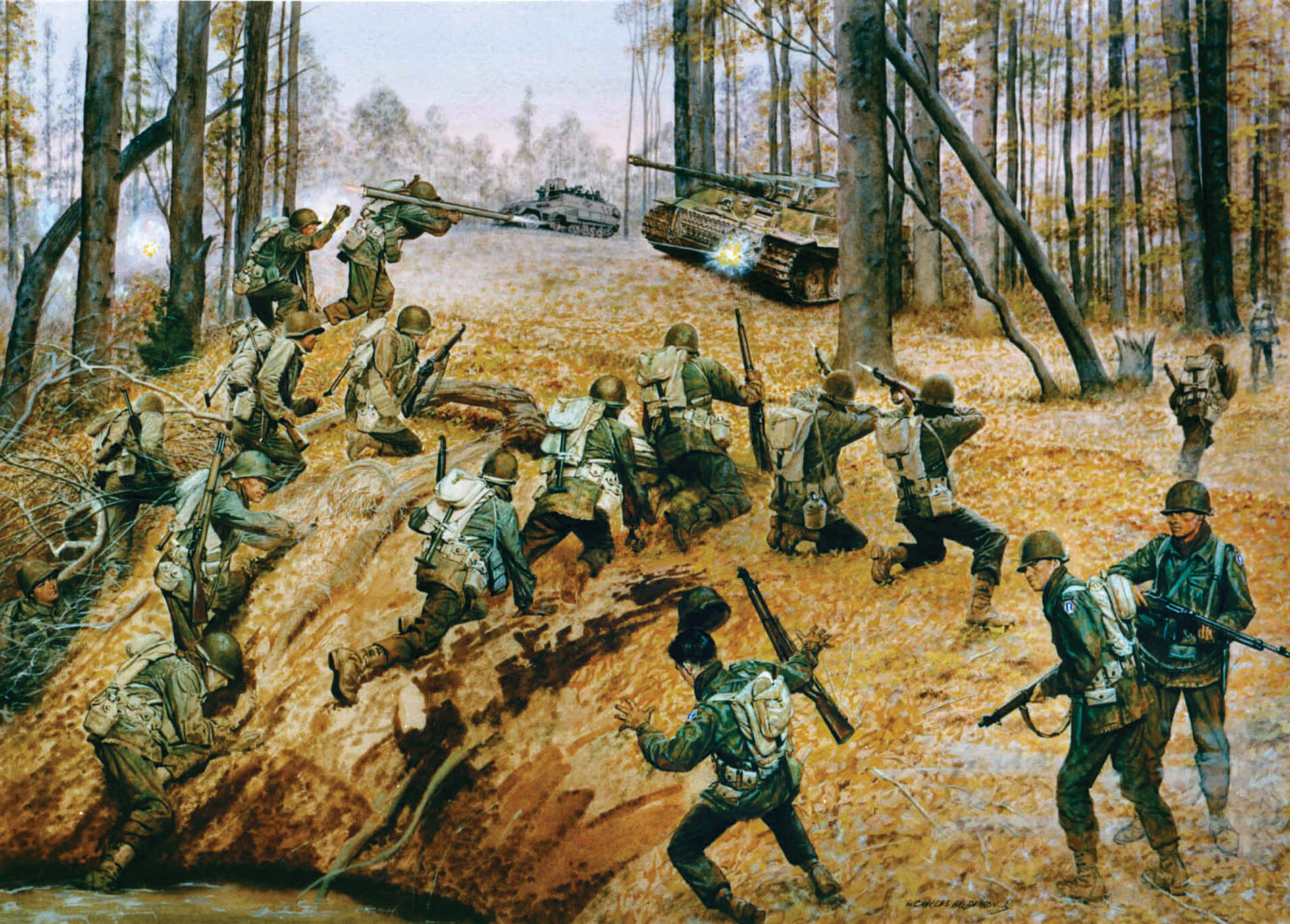
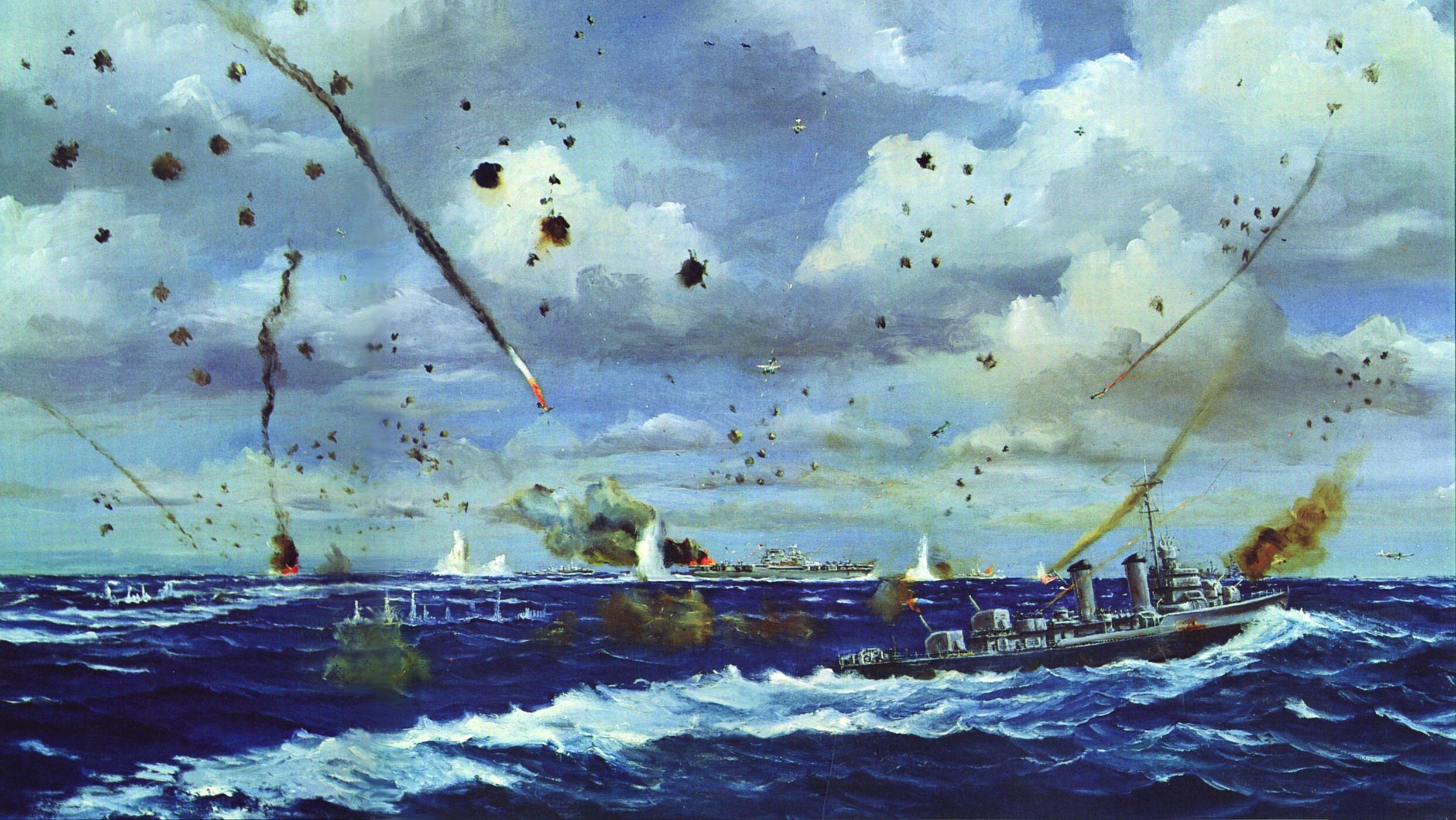
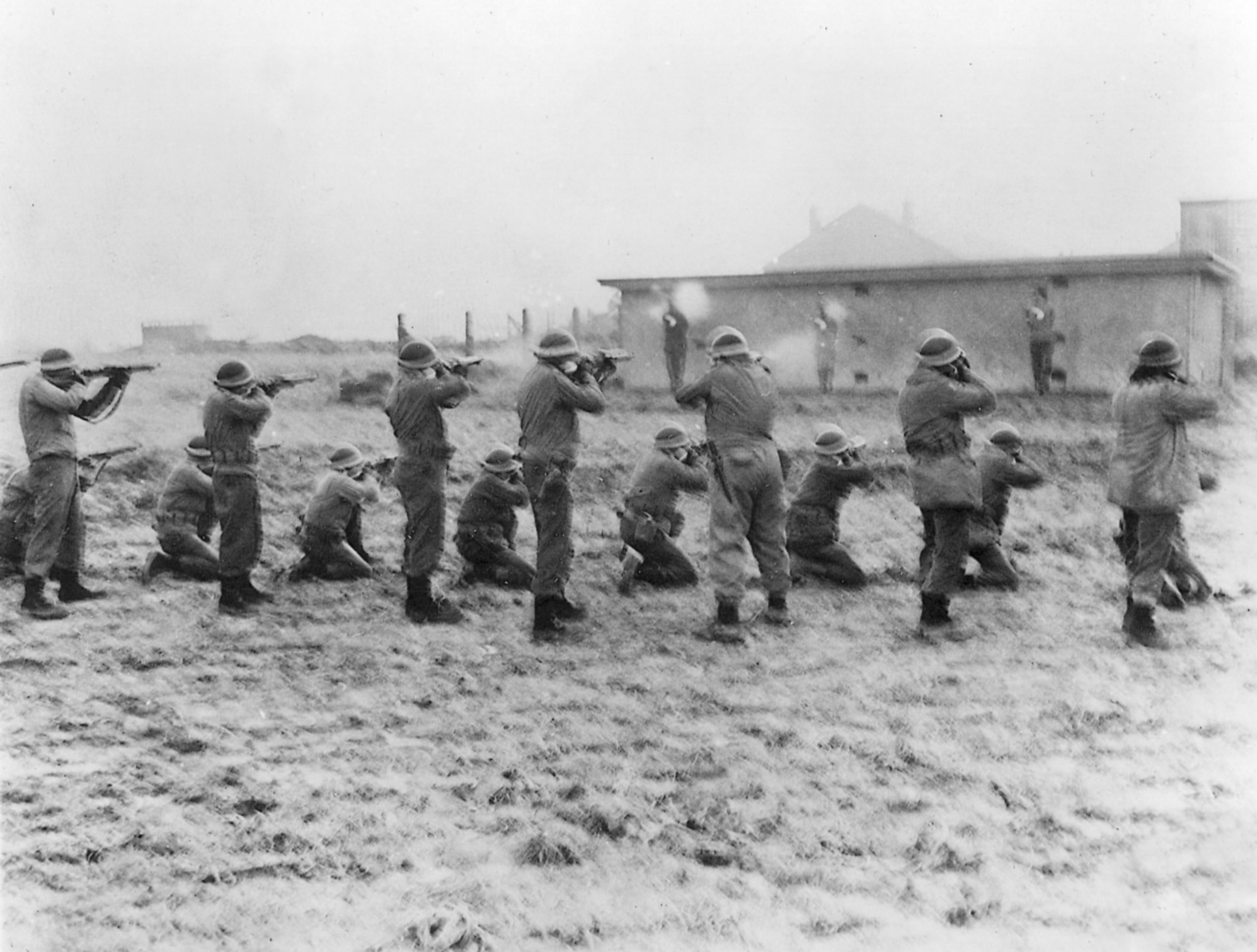
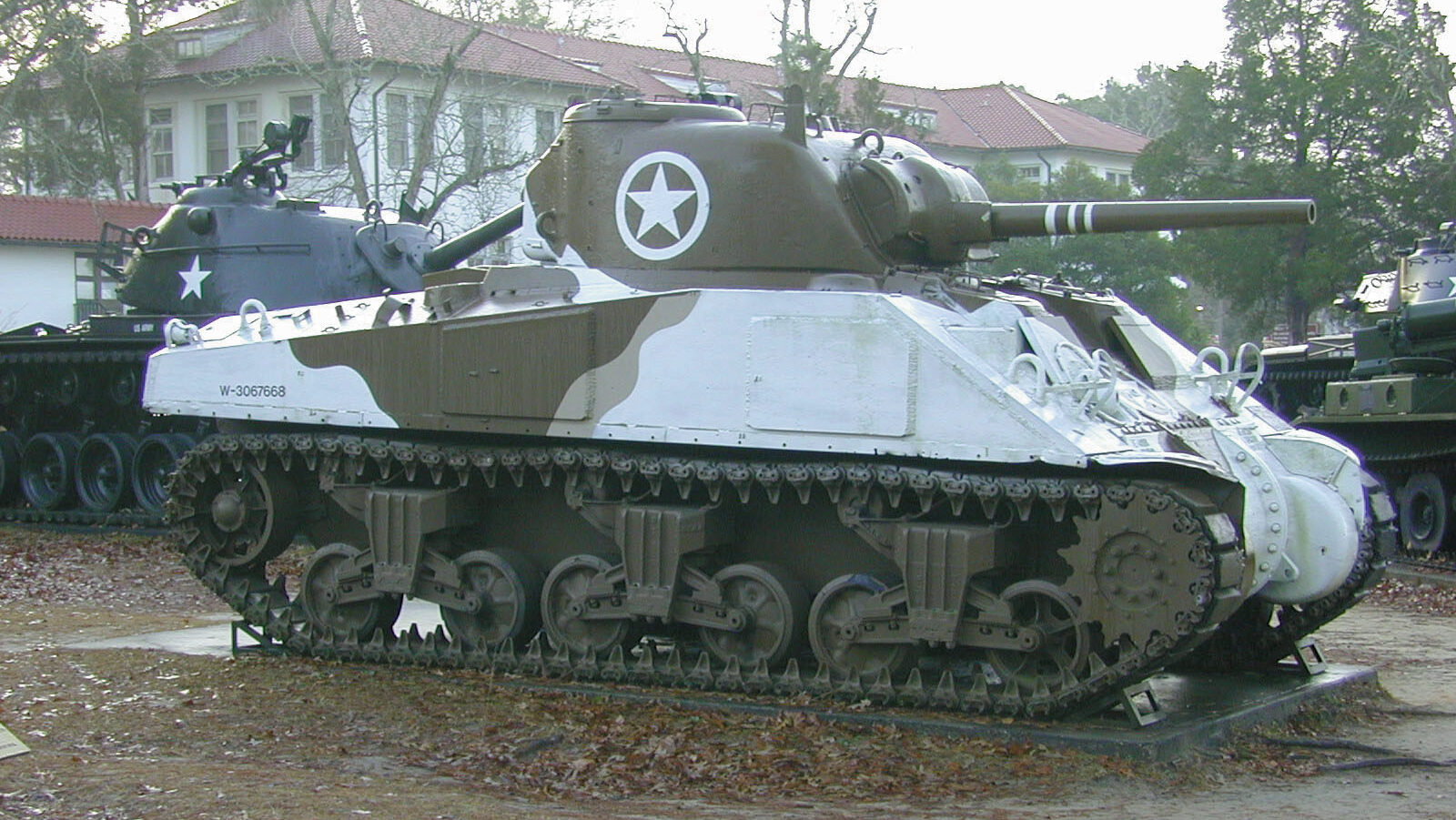
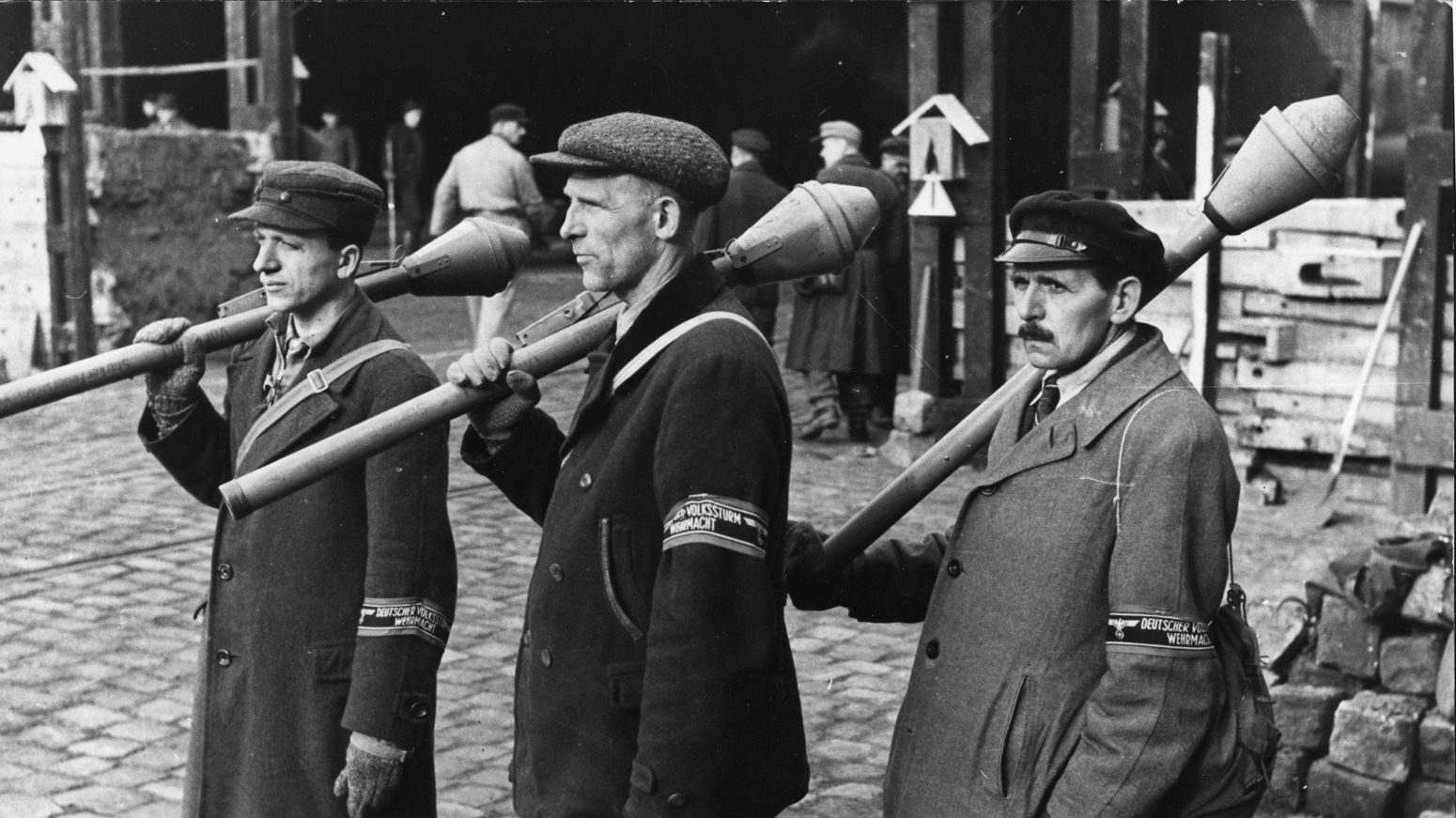
Your photo caption ‘A British Crusader tank zips by a burning German Panzer Mk IV tank during the well-named Operation Crusader, November 27, 1941.’ appears to be wrong.
That looks like an American M-3 ‘Lee’ tank (based on the hull mounted 75mm gun, and the top mounted 37mm gun’
In view of the recent disclosure that Rommel had known in detail intelligence on British movements due to American reporting on the progress of the war .It makes Rommel not quite as outstanding he became. Churchill actions were (i.e was he or should he have checked this)questionable and Claude Auchinleck very successful considering the circumstances.
A disaster may have befallen a less capable general with Egypt going under.
His handling of the disorder in retreat and organization to create halting Rommel was brilliant
a
Rommel was doomed by logistics. The Italian navy was responsible for protection of convoys carrying supplies to Rommel for Italy. The Btitish had broken the Italian navy codes and pretty much destroyed the Navy with this information on convoy movements. The RAF and the Royal Navy defeated the Italians and destroyed much of the Italian navy with the brilliant and succesful destruction of the Italian navy at Toronto. British Swordfish torpedo bombers launched from aircraft carriers were decisive in the destruction of the Italian fleet at Taranto.
There is no doubt that Field Marshal Auchinleck is a great soldier and a great battle field tactician. Your article clearly shows that. But, what I believe are his failings is in the selection of suitable subordinates both for the field command as well as for the staff. Both Cunnigham and Ritchie proved unfit to the job of battle field commanders who can get the grip on the battlefield and impose their wills on the enemy. Similarly, staff officers in Cairo head quarters are also found to be deficient resulting in the loss of confidence of divisional and corps commanders with their higher commands (both in eighth army and middle east commands). The fault for the same should squarely lie on Auchinleck. Further, he was also deficient in training his men to fight in the difficult terrain which is the north african desert. Montgomery wisely used the defensive arrangements made by Auchinleck and he also was able to bring back the confidence of men and commanders in higher commands. He also relentlessly trained his men. The results were there for all to see at the end of the Second Battle of ElAlamein. In fact the second battle did not went as per Montgomery’s plan and instead of a battle of maneuver it ended as a battle of attrition and slugfest. But Montgomery was able to adopt to the changing circumstances of the battle field and was able to prevail over Rommel. At the end the credit for victory over Afrikakorps should go to both Auchinleck and Montgomery.